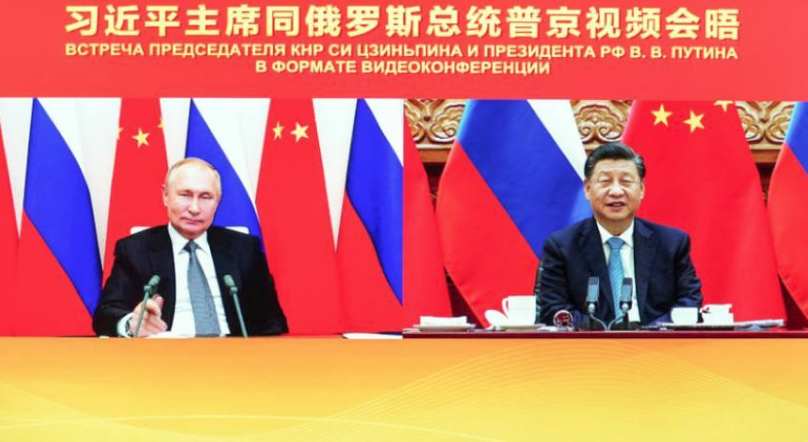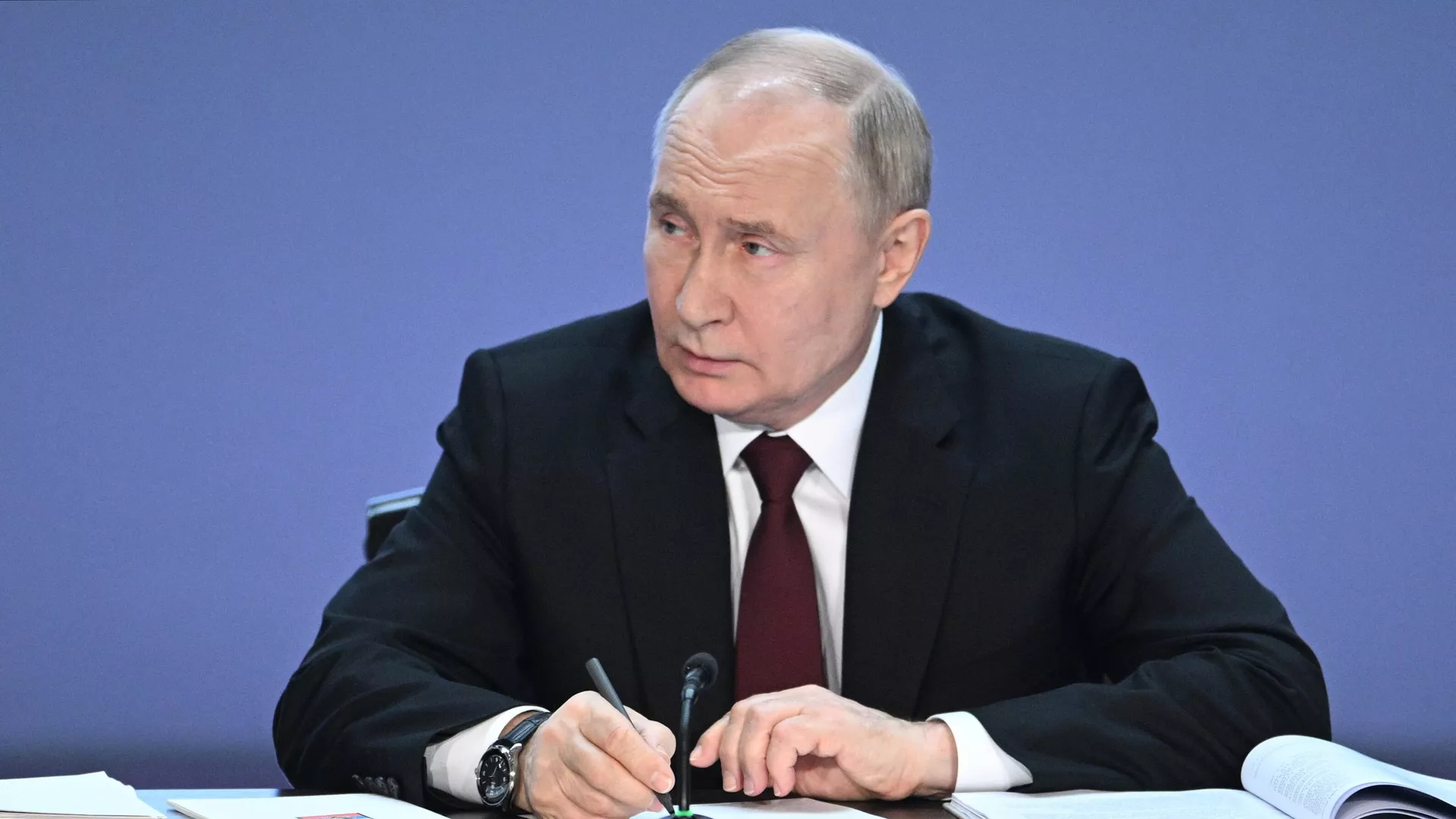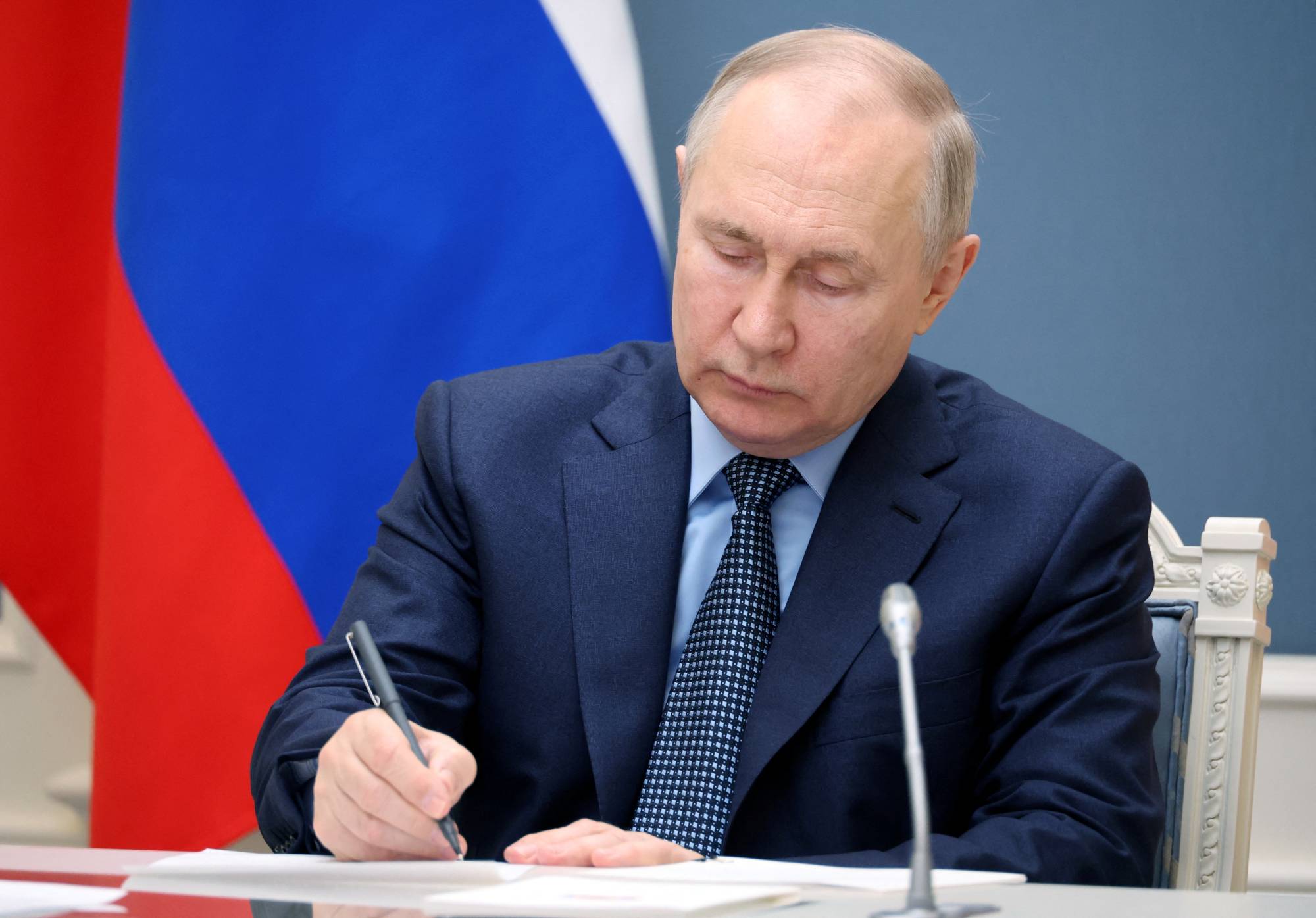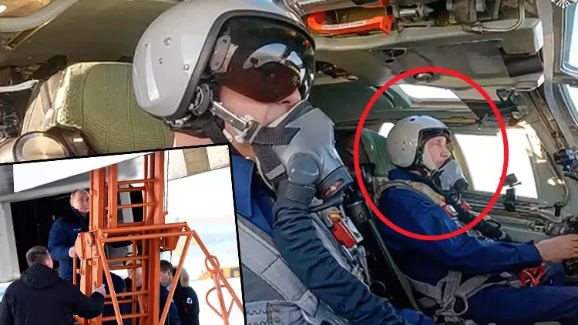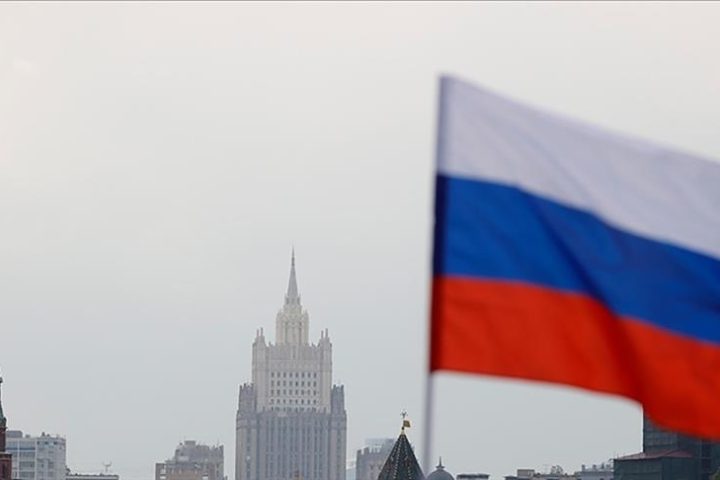Russian-Chinese rapprochement against the West
The meeting of the leaders of Russia and China via video conference drew a new Cold War line, with “Beijing and Moscow forming a unifying axis in the face of strained relations with the West.”
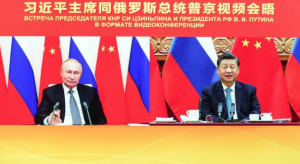 The candid tone that dominated the talks (some of which was also broadcast on Russian television) between Xi Jinping and Vladimir Putin contrasted with a series of Western criticisms of Russia and China. So much so that Russia is accused of preparing to invade Ukraine, while China is criticized for its repression policy in Hong Kong and Xinjiang.
The candid tone that dominated the talks (some of which was also broadcast on Russian television) between Xi Jinping and Vladimir Putin contrasted with a series of Western criticisms of Russia and China. So much so that Russia is accused of preparing to invade Ukraine, while China is criticized for its repression policy in Hong Kong and Xinjiang.
According to the French News Agency (AFP), Putin praised the nature of relations between the two powers, based on “non-interference” and “respecting each other’s interests”, and his “determination to transform the common border into a belt of eternal peace and good neighborliness”. Addressing his “beloved friend” Xi Jinping, the President of Russia said, “I see these relations as a real model of cooperation between countries in the twenty-first century.”
- Which countries will be the most dangerous in the world in 2022?
- German Chancellor Olaf Scholz: “We are ready for constructive dialogue with Russia”
This statement demonstrated the closeness of Cinping and Putin, especially compared to the less candid conversations Russian and Chinese leaders have had with US President Joe Biden in recent weeks. Beijing and Moscow also described the fact that Biden was not invited to the virtual democracy summit last week as “an act of hostility towards them”.
During the virtual summit, Putin stated that he will meet with his Chinese counterpart in Beijing in February on the occasion of the opening of the Winter Olympics. The two allies have not met in person since the start of the pandemic. The Russian President stressed that he and his counterpart are against “any attempt to politicize sports and the Olympics”.
Beijing has previously condemned the US, Australia, UK and Canada’s decision to diplomatically boycott the Winter Olympics “to protest human rights abuses in China, particularly in the predominantly Muslim Xinjiang region in the northwest”. Moscow, on the other hand, described “this diplomatic boycott” as an attempt to politicize the Olympics.
Russia, on the other hand, sees itself as the victim of “the West’s anti-Russian policy in the field of sports.” He also believes his geopolitical rivals have benefited from a massive doping scandal that has undermined his credibility in the sport for years. Moscow has been embroiled in a major scandal for years over the systematic use of doping and repeated cheating. This led to Russia being suspended from major international competitions for two years in 2020.
Russian athletes with a negative doping test are allowed to compete under a neutral flag. Therefore, it is possible for the contestants to participate in Beijing. Also, Russian officials, including Putin, are prohibited from participating in international competitions unless invited by the leader of the host country.
Russia and China are trying to strengthen their alliances in the face of deteriorating relations with the West. Likewise, the two permanent members of the United Nations Security Council (UNSC) strengthened their relations in the fields of economy, defense and energy. Western countries have consolidated their positions against Russia over its military maneuvers on the Ukrainian border, which has raised fears for some over the invasion of Ukraine. Moscow says NATO’s growing military presence in Eastern Europe, particularly its support for Ukraine, makes it feel threatened.
As for China, it has been regularly criticized by Washington and its allies for “Taiwan, the mistreatment of the Uighur Muslim minority, and the restriction of political freedoms in Hong Kong.”

